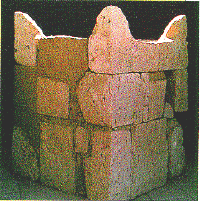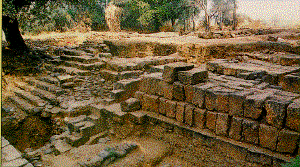Church: Form or Substance?
In Mesopotamian thought, the purpose of human existence was to provide the gods with the necessities and luxuries of life. Israelite worship shared many of these external forms, such as calling sacrifices “the food of their God” (Leviticus 21:6). The essence of Israelite worship, though, was quite different.
As the prophets pointed out, God could not be worshiped only externally. To honor God, it was necessary to obey his laws, including the moral and ethical laws as well as the ritual laws. Simply to appear before God with sacrifices, while flouting his demands for justice, was to insult him.
God certainly did not need the sacrifices for food: “If I were hungry I would not tell you, for the world is mine, and all that is in it. Do I eat the flesh of bulls or drink the blood of goats?” (Psalm 50:12-13). Rather, sacrifices and other types of worship were to honor God as king.
Later in Israel’s history, the prophets warned that purity of form in worship — performing the sacrificial rituals precisely as commanded — was meaningless if the worshipers failed to meet the ethical and moral responsibilities of God’s covenant and laws. When the prophets found that a focus on the form of worship had replaced the substance of worship — obedience to God’s law — they proclaimed God’s scorching judgment on Israel’s elaborate but empty rituals.
Through the prophet Amos, God warned Israel: “I hate, I despise your religious feasts; I cannot stand your assemblies. Even though you bring me burnt offerings and grain offerings, I will not accept them…. But let justice roll on like a river, righteousness like a never-failing stream!” (Amos 5:21-22, 24).
Although the prophets honored God’s sacrificial system, they continually warned Israel and Judah that sacrifices alone were not enough. As Isaiah proclaimed: “‘The multitude of your sacrifices — what are they to me?’ says the Lord. ‘I have more than enough of burnt offerings…. Wash and make yourselves clean. Take your evil deeds out of my sight! Stop doing wrong, learn to do right! Seek justice, encourage the oppressed. Defend the cause of the fatherless, plead the case of the widow’” (Isaiah 1:11, 16-17).
God was unhappy with Israel’s sacrifices. Although the people were making the traditional sacrifices, they were unfaithful to God in their hearts. Like many people today, they had come to place more faith in the rituals of their religion than in the God they worshiped. God hates worship done out of pretense or for show. If we are living sinful lives and using religion only to look respectable or feel good, God will reject what we have to offer.
We need to examine our own religious practices. Do they spring from faith in the living God? Or are we guilty of performing empty rituals, as did ancient Israel? If we are, we need to remember that God does not honor our outward behavior if our inward faith is missing. God always demands a sincere heart (Deuteronomy 10:12-16; 1 Samuel 15:22-23; Psalm 51:16-17).
| This Israelite horned altar for animal sacrifice (right) was found in southern Israel at Beersheba in the early 1970s.
A high place, or hilltop shrine (1 Kings 12:28-33), uncovered at Tel Dan (northern Israel) around the same time (below) contained numerous objects suggesting the cultic character of this site: incense burners, figurines and fragments of animal bones. |
 |
 |
|

